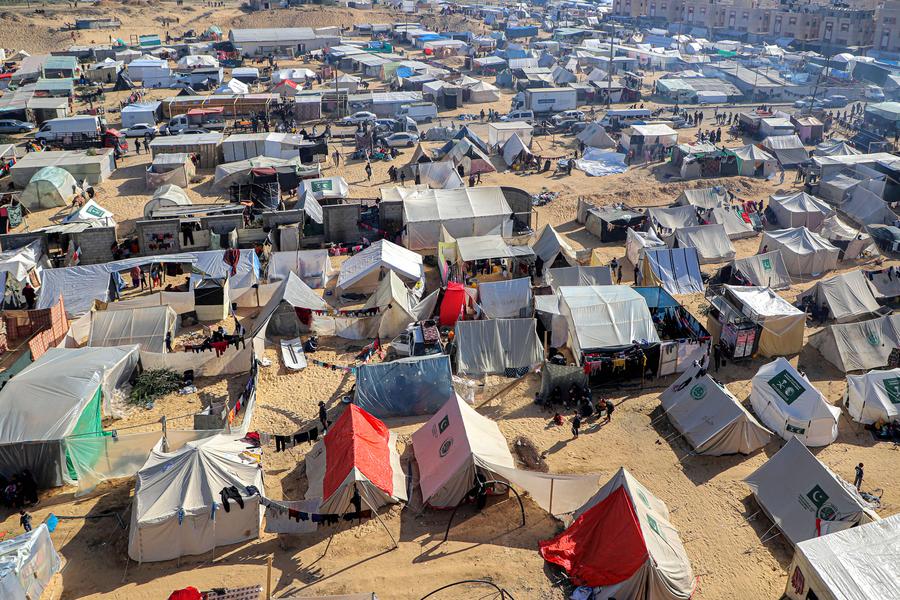GAZA, Dec. 13 (Xinhua) -- Thousands of displaced Palestinians gathered in southern Gaza are facing escalating threats of epidemics and infectious diseases as the Israeli army continued to pummel the enclave since the conflict broke out on Oct. 7.
According to the Gaza-based Health Ministry, medical teams in refugee camps have handled 325,000 cases of infectious diseases, raising fears of an impending health catastrophe.
Meanwhile, the World Health Organization (WHO) has warned that the health situation in the shelters in southern Gaza is appalling, with thousands of displaced people facing the danger of death due to the spread of epidemics, infectious diseases, malnutrition, lack of drinking water, and poor personal hygiene.
Currently, 120,000 cases of acute respiratory infections and 86,000 diarrhea cases have been reported, according to the organization, adding that there are also cases of jaundice, measles, and meningitis.
Marwan Al-Hams, head of the Health Emergency Committee in Gaza, warned that the increasing risks of epidemics are coinciding with a severe collapse of the health system in the Strip.
"We are witnessing symptoms of gastrointestinal issues, high fevers, outbreaks of skin diseases, respiratory infections including flu, colds, and the spread of measles among children in displacement areas every day," Al-Hams said.
According to the UN estimates, nearly 1.9 million people, or almost 85 percent of the total population, have been displaced in Gaza, some of whom have been displaced multiple times.
Tens of thousands of those reaching Rafah in the far south of Gaza are now facing extremely overcrowded conditions inside and outside refugee shelters, according to the UN Office for the Coordination of Humanitarian Affairs (OCHA).

Due to the insufficient amount of toilets, open defecation is widespread, raising concerns about the spread of disease, especially on rainy days and amid the ensuing floods, the OCHA said.
Suhayb Al-Hams, director of Kuwait Specialized Hospital in Rafah, said that the emergency rooms at the hospital have received over 1,000 cases due to the spread of diseases, including respiratory diseases, diarrhea, viral hepatitis, various skin diseases, high fevers, and meningitis.
The UN Relief and Works Agency for Palestine Refugees (UNRWA) said it houses nearly 1.3 million displaced people in 154 facilities across Gaza, including over 1.1 million in 97 shelters in central and southern areas -- nine times of its planned capacity.
Concerns are growing for the vulnerable groups living in shelters, including persons with disabilities, pregnant, newly delivered or breastfeeding women, patients recovering from injuries or surgeries, and those with weak immune systems.
Meanwhile, the Gaza Municipality Union warned of waste pile-up in residential neighborhoods amid severe challenges faced by municipal teams in waste collection due to Israeli airstrikes and fuel shortages.
Municipal teams face restrictions accessing the main dumping sites at Gaza's border peripheries, which daily produce 2,000 tons of waste, posing a threat of health hazards and a significant environmental catastrophe. ■












